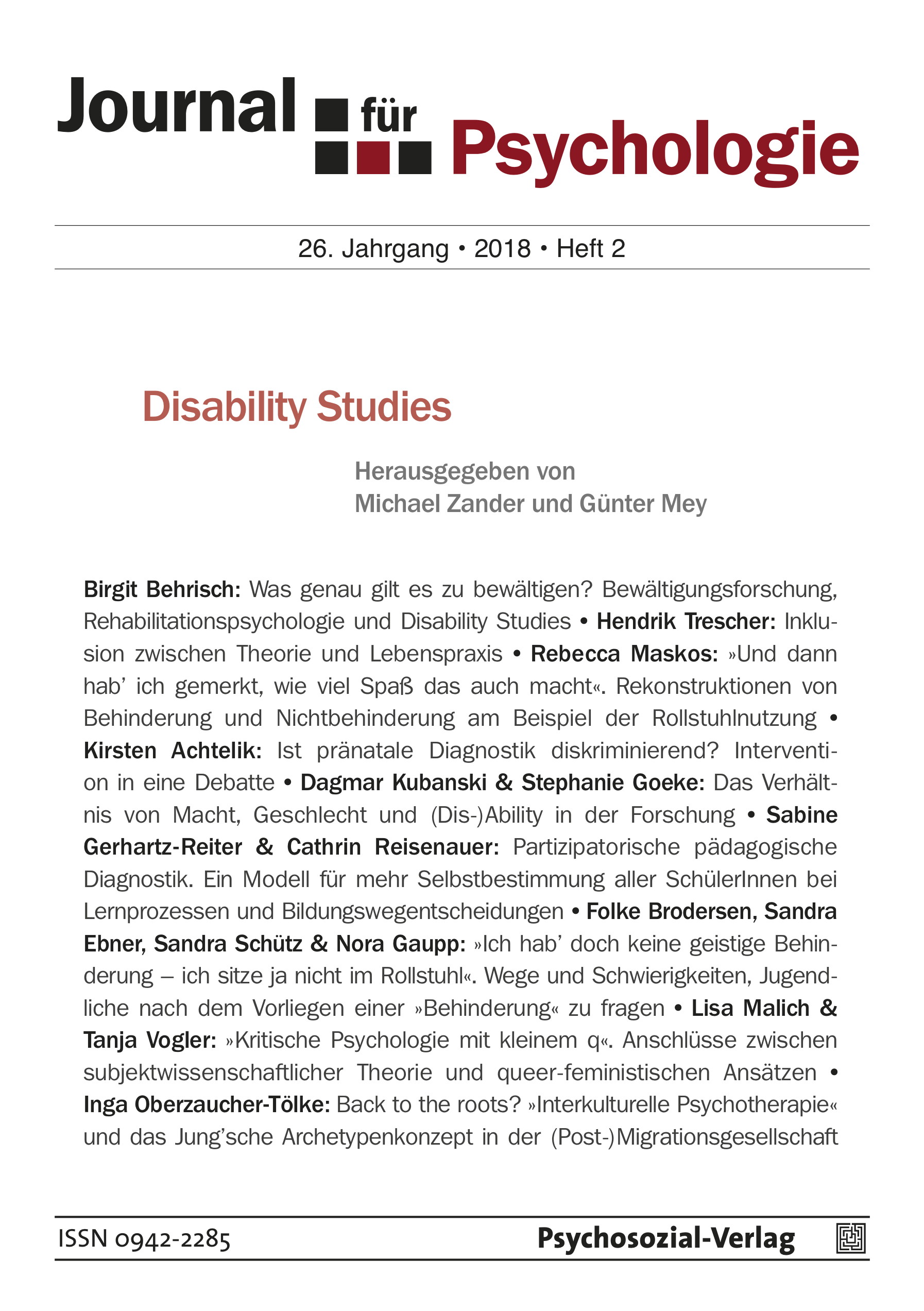Inklusion zwischen Theorie und Lebenspraxis
DOI:
https://doi.org/10.30820/8248.03Keywords:
inclusion, disability, discourse, subject, subjectivation, practiceAbstract
Based on the vagueness of the term of inclusion, the present paper aims to introduce a concept of inclusion, which regards inclusion as a process of deconstructing barriers of participation that prevent subjects from participating in discourse. It is argued that inclusion and disability must be considered as two interrelated practices, which can only be consistently understood and finally used in research and practice if viewed in their interrelationship. If inclusion is regarded as a process of deconstructing barriers that prevent subjects from participating in discourse, the concept has therefore to be contrasted with an understanding of disability that refers to disability as a practice respectively as the subject being excluded from discourse. This paper focuses on providing both a theoretical as well as an empirical analysis of both concepts, highlighting their mutual interdependency.Downloads
Published
2018-11-21
How to Cite
Trescher, Hendrik. 2018. “Inklusion Zwischen Theorie Und Lebenspraxis”. Journal für Psychologie 26 (2):29-49. https://doi.org/10.30820/8248.03.
Issue
Section
Schwerpunkt
License
This license allows private use and unmodified distribution, but prohibits editing and commercial use (further information can be found at: https://creativecommons.org/licenses/by-nc-nd/4.0/).
The terms of the Creative Commons licence only apply to the original material. The reuse of material from other sources (marked with a reference) such as charts, illustrations, photos and text extracts may require further permission for use from the respective copyrights holder.



